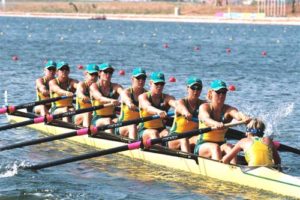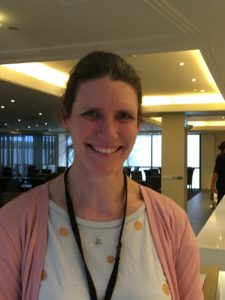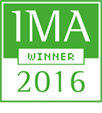The Olympian role of a Radiation Oncologist

Radiation oncologists play a vital role in the treatment of cancer patients and modern day healthcare. Former Australian Olympic rower Monique Heinke is currently training to be a radiation oncologist after pursuing a career in medicine in her post-sporting life. Here she discusses some of her experiences with Targeting Cancer:
Radiation oncologists perform some Olympian tasks in their duties, so Monique Heinke should be born for the role.
The former top-class rower, who represented Australia in two Olympics, is currently training to be a radiation oncologist.
Monique, who opted for a career in medicine shortly after ending her fine sporting career, is currently a fourth-year trainee registrar in the Cancer Therapy Centre at Liverpool Hospital in Sydney’s south-west.
Her experiences have already shown her how vital it is to promote radiation therapy as a cancer treatment through mediums such as the Targeting Cancer campaign.
“Radiation therapy is such an important part of the treatment and journey for many cancer patients,” Monique said. “Studies have shown that it is under-underused in terms of the overall numbers of patients who might benefit from this treatment.
“It is so important that the patient is fully aware of all the treatment options open to them so they can make informed decisions about their future, so it’s great that that the Targeting Cancer campaign is making effort to promote radiation treatment.”
Monique started rowing while in the final year of an undergraduate science degree, with her talents earning her selection for the Australia women’s quad sculls and eight teams at the 2000 Sydney and 2004 Athens Olympics.
She decided to follow a career a medicine shortly after retiring from rowing and started her studies as a mature student in 2006 in medicine, shortly after the birth of her first child.
Monique later carried out her internship at Sydney’s Royal North Shore Hospital, where she became interested in radiation oncology.
“I like the fact that it’s very patient-focused,” she said. “The combination of direct care of patients and technology also made it seem different to other areas of medicine. It’s a good mix of clinical work, technology and further opportunities for research.
“I also found other radiation oncologists I met to be very inspiring people.”
Monique said the environment at Liverpool made it an excellent place to carry out her training.
“It’s quite a big department (and) they are interested in developing new technologies,” she said. “They also have strong research facilities here so I thought this was a good place to my training.”
Monique said she had found the transfer to a new career understandably challenging but also highly rewarding.
“The first year or so (as a trainee) was quite overwhelming – especially learning about treatments and different cancer types – but I’m enjoying the path I’ve taken,” she said.
“The majority of this work is patient based, which I think was the big attraction for me.
“Radiation therapy is such an important part of a cancer patient’s life and journey. I enjoy helping put together a treatment plan for the patient and I find helping patients and their families through their treatment so rewarding.”
Now a mother-of-two and based at Petersham in Sydney’s inner west, Monique also said she derives a different sense of satisfaction in her new role to her former life on the water.
“How does it compare to the highs of my rowing career?” she said. “It’s a different sense of ‘high’.
“I returned to rowing briefly to try and earn selection for the London Olympics in 2012, but didn’t make it. I think that told me that it was time to move on with my life.
“Working in a radiation oncology Department is such a different environment to be in, but there are some similarities. In rowing you are aiming towards your goal of winning a medal or getting selected into a crew and that same type of teamwork is applicable in radiation oncology.
“I’m feeling more and more like my knowledge is growing and my understanding of the area is improving as I progress. It’s been a challenging but satisfying period of my life.”
Discover more about radiation oncology by clicking here.





